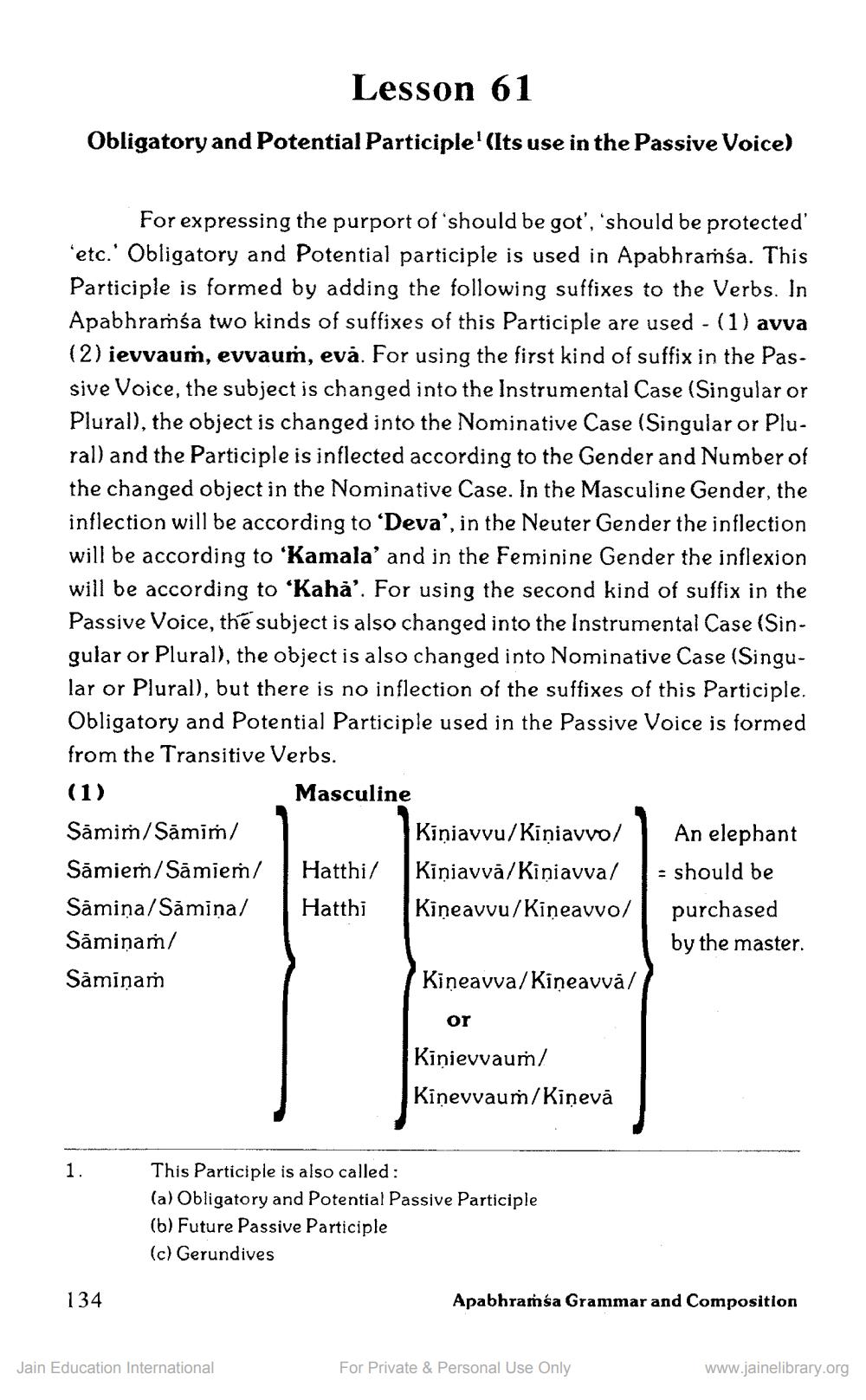________________
Lesson 61
Obligatory and Potential Participle1 (Its use in the Passive Voice)
For expressing the purport of 'should be got', 'should be protected' 'etc.' Obligatory and Potential participle is used in Apabhramsa. This Participle is formed by adding the following suffixes to the Verbs. In Apabhramśa two kinds of suffixes of this Participle are used - (1) avva (2) ievvaum, evvauṁ, evȧ. For using the first kind of suffix in the Passive Voice, the subject is changed into the Instrumental Case (Singular or Plural), the object is changed into the Nominative Case (Singular or Plural) and the Participle is inflected according to the Gender and Number of the changed object in the Nominative Case. In the Masculine Gender, the inflection will be according to 'Deva', in the Neuter Gender the inflection will be according to 'Kamala' and in the Feminine Gender the inflexion will be according to 'Kaha'. For using the second kind of suffix in the Passive Voice, the subject is also changed into the Instrumental Case (Singular or Plural), the object is also changed into Nominative Case (Singular or Plural), but there is no inflection of the suffixes of this Participle. Obligatory and Potential Participle used in the Passive Voice is formed from the Transitive Verbs.
(1)
1.
Samim/Samim/ Kiniavvu/Kiniavvo/ Sāmiem/Sāmiem/ Hatthi/ Kiniavva/Kiniavva/ Sāmiņa/Sāmiņa/ Hatthi Kineavvu/Kineavvo/ Sāmiņam/
Sāmiņaṁ
134
Masculine
Jain Education International
Kineavva/Kineavvȧ/
or
Kinievvaum/ Kinevvaum/Kiṇevā
This Participle is also called:
(a) Obligatory and Potential Passive Participle
(b) Future Passive Participle
(c) Gerundives
An elephant
For Private & Personal Use Only
= should be
purchased
by the master.
Apabhramsa Grammar and Composition
www.jainelibrary.org




